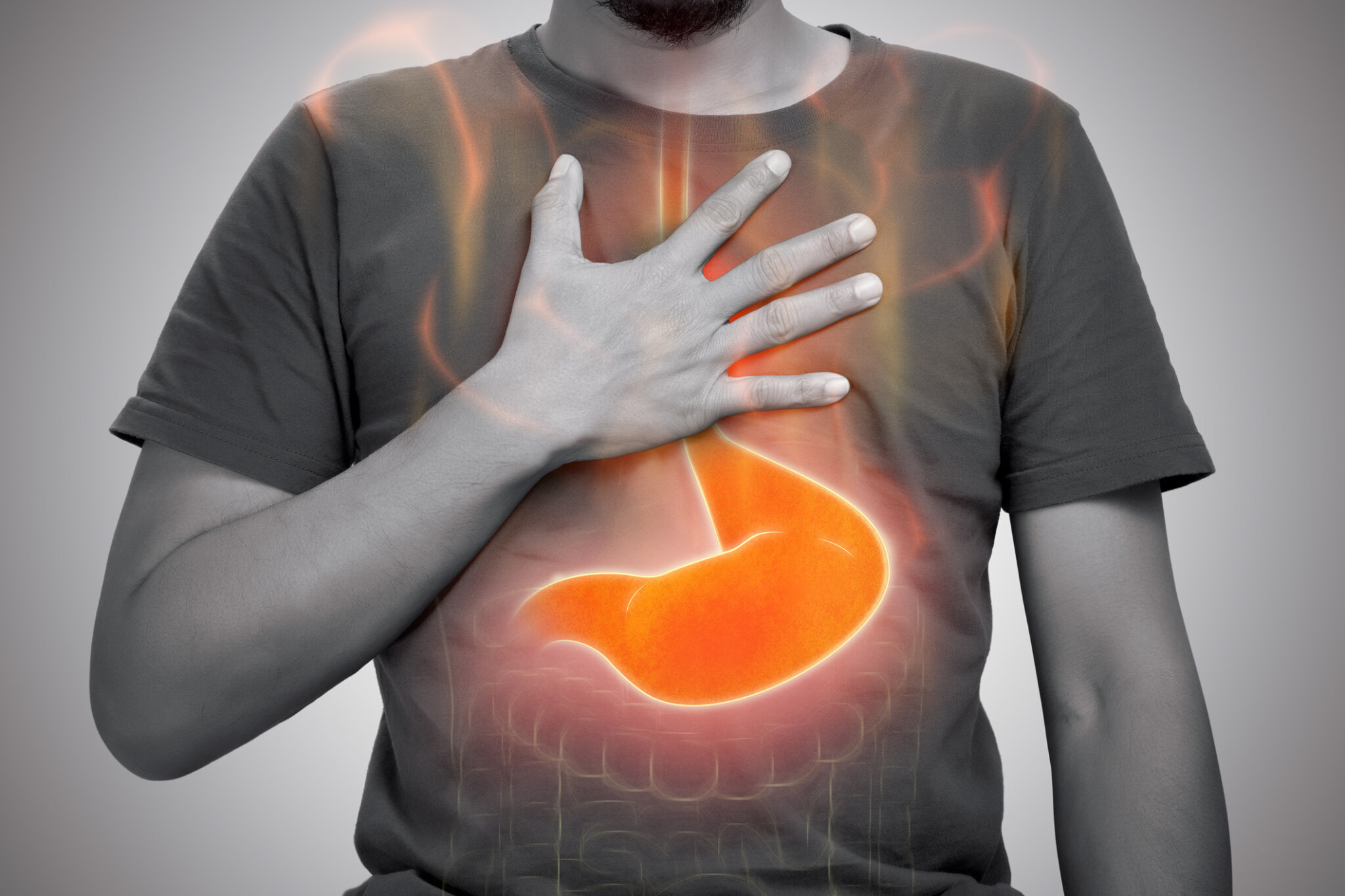Acid Reflux and the Aging Process

Acid reflux, also known as heartburn, is the backward flow of stomach acid into the tube that connects your throat to your stomach, called the esophagus. During an episode of acid reflux, the lining of the esophagus becomes irritated and causes the burning sensation you feel in your chest known as heartburn.
The stomach and esophagus tube are separated by a valve called the lower esophageal sphincter. When the sphincter is not functioning properly, it allows the acid to reflux into the esophagus, causing heartburn. Some of the major causes of acid reflux are excess alcohol, caffeine, chocolate, peppermint, spicy or fried food, citrus drinks like orange juice, carbonated soda drinks, smoking, medication such as ibuprofen and other non-steroidal anti-inflammatory drugs (NSAIDs), as well as prescription medications. It’s always a good idea to check with your doctor if your medication may cause you reflux. Acid reflux is also common during pregnancy, when overeating, obesity and when a person develops hiatal hernia.
Acid reflux becomes more common with age. As we age, we tend to put on more weight, may not be as physically active as we once were and may have more sedentary lifestyles, leading to weight gain. Studies have shown that being just 10 to 20 pounds overweight makes you 3 times more likely to have heartburn. When overweight people become obese, it further heightens their risk for developing reflux. Obese people are nearly three times more likely than average weight people to have heartburn. When you overeat, pressure is applied to the lower esophageal sphincter, which can cause it to relax and allow acid past its guard, leading to a night of heartburn. Also, with age, the stomach muscles and tissue fibers weaken, and it’s not uncommon for the upper portion of the stomach to bulge into the chest cavity, a condition called hiatal hernia, which commonly results in acid reflux.
Some easy tips and lifestyle modifications to prevent acid reflux include sitting upright at least three hours after eating and not lying down right away after a meal. The goal is to not eat three hours before going to sleep. Also, chewing your food thoroughly reduces the amount of work and energy that your stomach requires for digestion and helps reduce acid levels and, thus, acid reflux.
Avoiding the earlier mentioned foods, alcohol, smoking and medications prevents reflux as well. Reducing stress is also essential. A 2023 study found that people with moderate to high stress were two times more likely to have acid reflux symptoms than people with low stress. If you have persistent acid reflux symptoms, see your physician to discuss seeing a gastroenterologist to perform an upper endoscopy, which will visualize your esophagus and stomach to make sure that there is no other pathology in that area. Eat well, sleep well, love well, live well to age well!
Dr. Magdalena Swierczewski, M.D. is board-certified in internal medicine, anti-aging medicine and specializes in anti-aging and integrative functional medicine.
Dr. Peter Michalos, M.D. is a clinical associate professor at Columbia University College of Physicians and Surgeons and chairman of the Hamptons Health Society.
Always consult your physician before beginning any new medical treatment or fitness program. This general information is not intended to diagnose any medical condition or to replace your healthcare professional.



